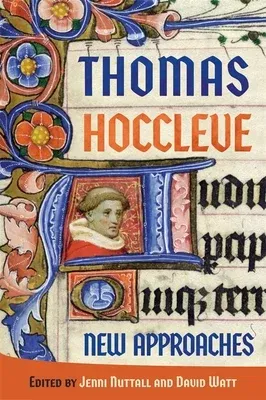This volume, the first collection of essays devoted to Hoccleve since
1996, both confirms his importance in shaping the English poetic
tradition after Chaucer's death and demonstrates the depth of ongoing
critical interest in Hoccleve's work in its own right.
The Middle English poet Thomas Hoccleve, known particularly for his
entertainingly biographical verse describing life as a Privy Seal clerk
in early fifteenth-century Westminster, is now recognised as a key
figure in the literature of later medieval England. This volume, the
first collection of essays devoted to Hoccleve since 1996, both confirms
his importance in shaping the English poetic tradition after Chaucer's
death and demonstrates the depth of ongoing critical interest in
Hoccleve's work in its own right. Chapters explore the idiosyncratic
forms of his two principle works, The Regiment of Princes and Series, as
well as Hoccleve's distinctive imagery of moving feet, of swelling and
bursting bodies, and of the actions of personified Death. Other essays
consider the presence of the figure of the woman reader, the part played
by the codex in posthumous literary sanctification, the links between
Hoccleve's formulary of model letters and documents and his own verse,
and the mutually informing relations of Hoccleve's minor poetry and
major works. They are preceded by a substantial introduction,
considering contemporary responses to Hoccleve in the light of current
trends in literary criticism and surveying the reception of his works
between the fifteenth and nineteenth centuries.

